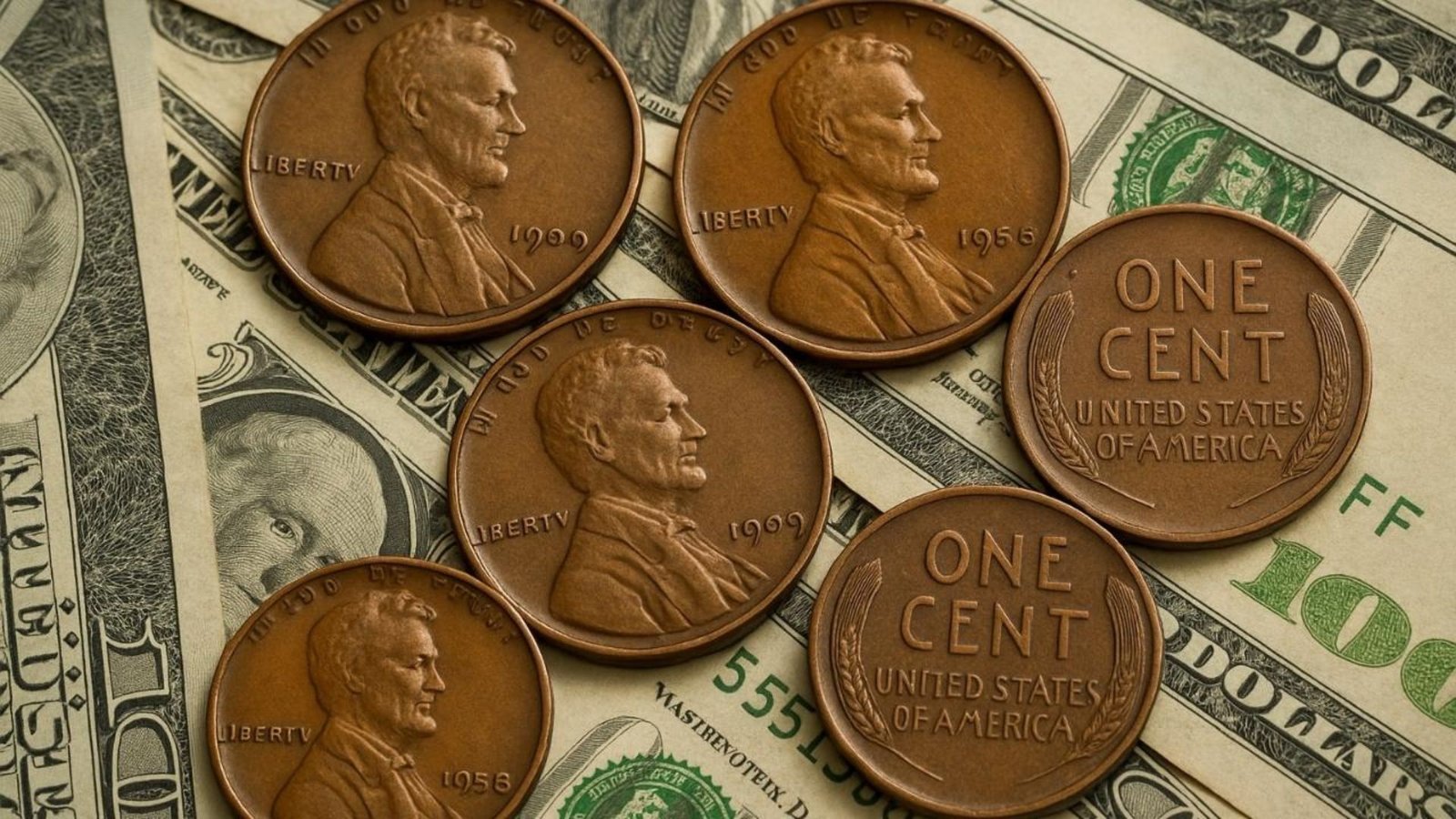Every coin in your collection holds a hidden story, but few are as fascinating as the Wheat Penny. Over the last decade, collectors and investors have watched these little copper coins skyrocket in value. From rare dates to mint errors, every Wheat Penny can reveal a secret history that adds to its allure.
What Are Wheat Pennies?
Wheat Pennies, minted from 1909 to 1958, feature the iconic wheat stalks on the reverse, a design that symbolizes the era’s agrarian roots. While they were everyday coins decades ago, today Wheat Pennies are prized collectibles. The copper content, low mintage dates, and mint errors contribute to their growing value.
The History Behind Wheat Pennies
The Lincoln Wheat Penny was introduced in 1909 to celebrate Abraham Lincoln’s 100th birthday. Designed by Victor D. Brenner, the coin replaced the Indian Head cent. Over the years, variations like the 1909-S VDB, 1914-D, and 1931-S have become highly sought after by collectors.
Why Wheat Pennies Have Gained Value
Over the last 10 years, the value of Wheat Pennies has increased due to collector demand, rising copper prices, and historical significance. Coins in uncirculated condition or with rare mintmarks can now fetch hundreds or even thousands of dollars. Each coin tells a story about American history and numismatic evolution.
How to Identify Valuable Wheat Pennies
Collectors should check for rare dates, mintmarks, and errors. Coins with strong detail on the wheat stalks, clear date impressions, or unusual features like double dies or repunched mintmarks are particularly valuable. Proper grading and certification can further increase market value.
Top Wheat Pennies of the Last 10 Years
1. 1909-S VDB Lincoln Cent
Rare first-year issue with designer initials VDB on the reverse. Highly prized in mint condition. Value: $2,000–$20,000
2. 1914-D Lincoln Cent
Denver Mint issue with extremely low mintage. Value: $1,500–$10,000
3. 1922 No D Lincoln Cent
Mint error lacking the Denver mintmark. Popular among error coin collectors. Value: $1,000–$5,000
4. 1931-S Lincoln Cent
Low mintage San Francisco coin, considered a key date. Value: $200–$3,000
5. 1955 Doubled Die Lincoln Cent
Iconic double die error on the obverse. Value: $500–$15,000
6. 1943 Copper Lincoln Cent
Mistakenly struck on copper planchets instead of steel. Extremely rare. Value: $200,000+
7. 1944 Steel Lincoln Cent
War-time minting error with steel planchet. Value: $50,000+
8. 1948 Wheat Penny
High-grade coins increasingly rare in circulation. Value: $10–$100
9. 1934-S Lincoln Cent
Strong collector interest in high grades. Value: $50–$1,000
10. 1958 Wheat Penny
Last year of issue, desirable for complete collections. Value: $1–$50
Wheat Pennies and Value Trends (2013–2023)
| Year / Type | Key Feature | 2013 Value | 2023 Value |
|---|---|---|---|
| 1909-S VDB | First-year issue, VDB initials | $1,800 | $20,000+ |
| 1914-D | Low mintage Denver coin | $1,200 | $10,000 |
| 1922 No D | Missing Denver mintmark | $900 | $5,000 |
| 1931-S | Key date, low mintage | $150 | $3,000 |
| 1955 Doubled Die | Obverse double die error | $450 | $15,000 |
| 1943 Copper | Rare minting error | $180,000 | $200,000+ |
| 1944 Steel | War-time error | $45,000 | $50,000+ |
Collector Tips for Wheat Pennies
| Tip | Explanation |
|---|---|
| Examine Date and Mintmark | Rare dates and mintmarks increase value |
| Check for Errors | Double dies, missing mintmarks, and planchet mistakes add value |
| Focus on Condition | Coins with full detail, minimal wear, and no scratches are prized |
| Certification Matters | PCGS/NGC graded coins command higher prices |
| Keep a Complete Collection | Collectors pay premiums for sets of key dates |
Expert Insights
Numismatists emphasize that historical context, condition, and rarity drive Wheat Penny values. Even common coins can become valuable if found in exceptional grade or with unique characteristics. Research, grading, and careful handling are critical for maximizing value.
FAQs
Q: Can Wheat Pennies still be found in circulation?
A: Rarely, but it’s possible to find 1940s–1950s coins in change or coin rolls.
Q: Are all Wheat Pennies valuable?
A: No, value depends on date, mintmark, error, and condition.
Q: How do I sell a rare Wheat Penny?
A: Use auctions, reputable coin dealers, or certified online marketplaces for best prices.
Conclusion
Over the last 10 years, Wheat Pennies have proven that even small coins tell big stories. From the historic 1909-S VDB to war-time copper errors, each coin represents a slice of American history. Whether you’re a collector or investor, examining your pennies closely could reveal a hidden treasure.

